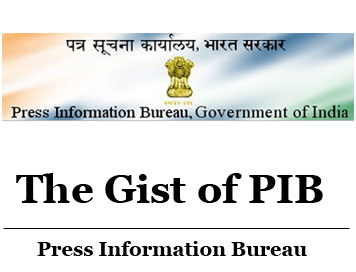(THE GIST OF PIB) Alternate Dispute Redressal Mechanisms (ADR)

(THE GIST OF PIB) Alternate Dispute Redressal Mechanisms (ADR)
(MAY-2024)
Alternate Dispute Redressal Mechanisms (ADR)
-
Alternative Dispute Resolution (ADR) is a set of techniques for resolving disputes outside of traditional court litigation, including methods like mediation, arbitration, and negotiation, which aim to achieve amicable settlements efficiently and cost-effectively with or without the involvement of neutral third parties.
Need for ADR in India:
-
Judicial Backlog: Courts in India have a huge number of pending cases, leading to delays in trial and justice. As of December 2023, there were around five crore cases pending in various courts of the country.
-
Lengthy Court Procedures: The procedures in courts are lengthy and time-consuming, which adds to the delay in case resolution. The average time for disposal of a case in High Courts is around 4 years and in subordinate courts is around 6 years.
-
Expensive Litigation: The traditional court system is very expensive, involving court fees, lawyers’ fees, and other associated costs, making it unaffordable for many people.
-
Accessibility for the Poor and Illiterate: A large number of people in India are illiterate and poor, who find the court system too technical, lengthy, and expensive. ADR offers a simpler and more accessible alternative.
-
Parties in ADR can choose the date, place, and fee for the neutral third party by mutual consent, making the process more convenient.
-
Reducing Court Burden: Relieving courts from the heavy burden of petty cases allows them to focus on more serious cases, especially those involving heinous crimes.
-
Government Expenses: Litigation increases the operational expenses of courts, which are funded by money. Reducing the number of cases through ADR can help in reducing these costs.
-
Preserving Relationships: Litigation often harms relationships and causes emotional stress to the litigants. ADR provides a more amicable way to resolve disputes, preserving relationships.
-
Flexibility and Efficiency: ADR proceedings are flexible. Parties can choose the applicable law, conduct proceedings in any manner and language they agree upon, and settle matters in fewer meetings, thereby reducing expenses and time.
Techniques of ADR:
-
Among the various techniques of ADR, Conciliation, Mediation and Arbitration are the important ones.
Conciliation:
-
‘Conciliation’ is a process in which a third party assists the parties to resolve their dispute by agreement.
-
The person assisting the parties is called a Conciliator. The Conciliator is appointed by the consent of both the parties to the dispute.
-
The Conciliator does not take any decision on the dispute before him/her but he/she may express an opinion about the merits of the dispute to the parties.
-
Both the parties may discuss their respective points of view and with the help of the Conciliator to resolve their differences.
-
Conciliation is a voluntary and non binding process in comparison to Arbitration and Litigation in courts.
-
Any party may terminate the conciliation proceedings at any time without assigning any reason. The other important difference is that the parties control the process and outcome of the dispute.
CLICK HERE TO DOWNLOAD FULL PDF
CLICK HERE TO DOWNLOAD UPSC E-BOOKS
Study Material for UPSC General Studies Pre Cum Mains
Get The Gist 1 Year Subscription Online
Click Here to Download More Free Sample Material
<<Go Back To Main Page
Courtesy: PIB


